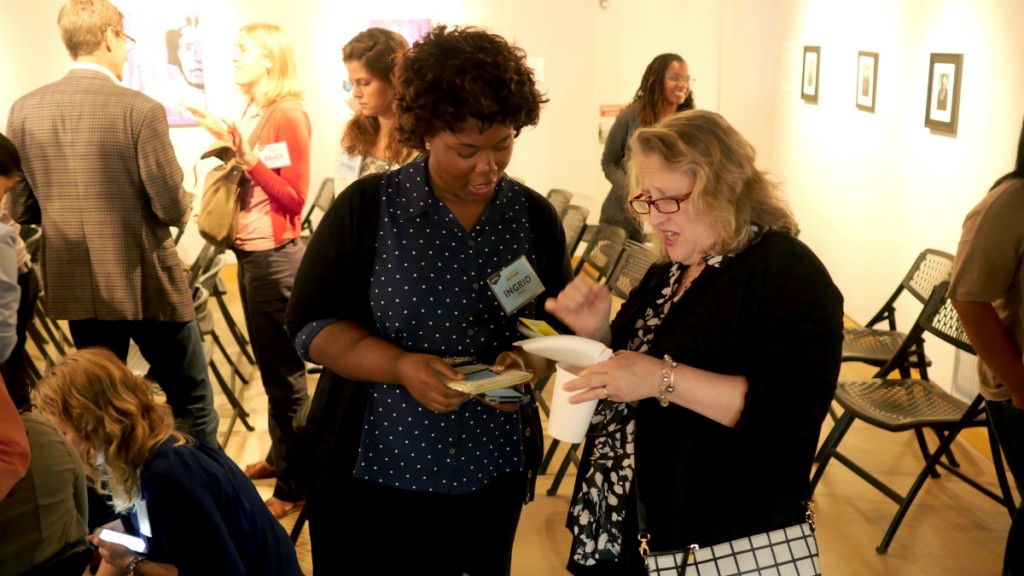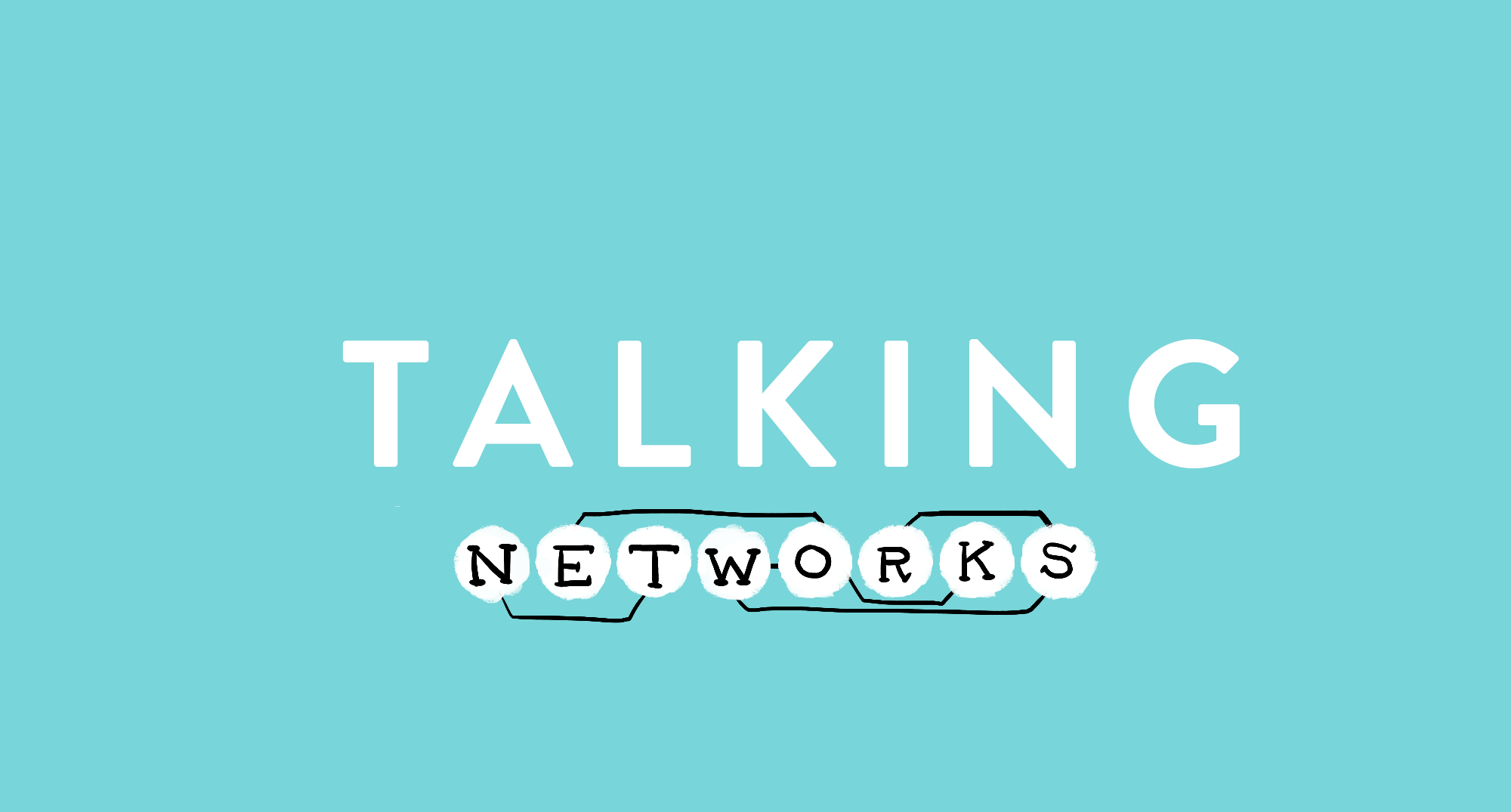
At the third installment of our Unraveled Network event series, we heard from community leaders and network weavers who model practices of diverse network building in their personal and professional lives. Our incredible panel shared their wisdom for bridging the gaps and reminded everyone in the room that the “wisdom resides within us” too.
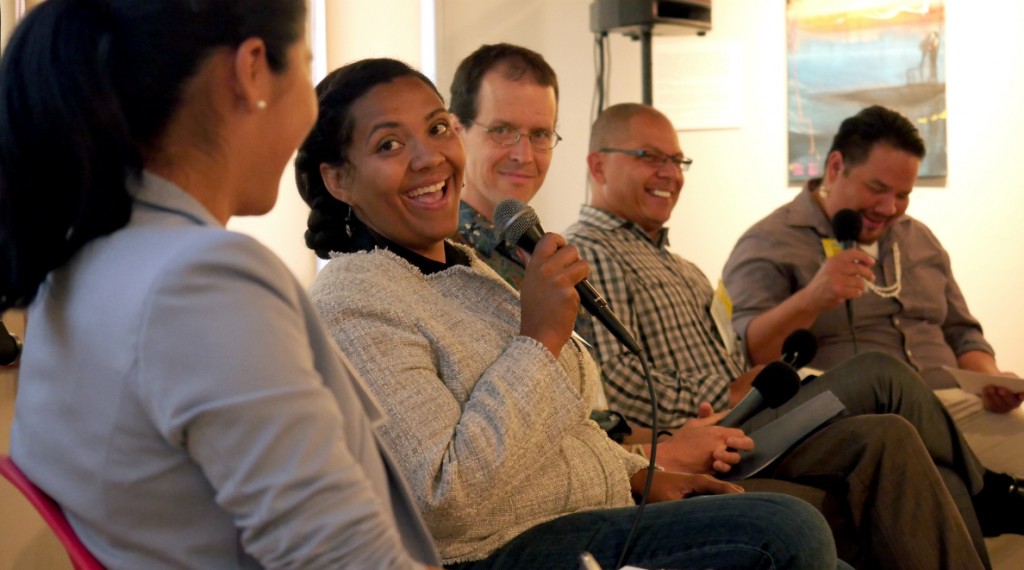

On shifting the dominant networking narrative
“Have people heard that one of the reasons why we are experiencing equity gaps in employment is because people of color don’t have the right network connections? Have people heard that? Yes? We are hearing that. That is a biased concept. Networking the way we understand it is based on a dominant culture perspective. And networking itself—I have something, you have something, let’s talk about this and make an exchange. Maybe in the future we will have an exchange again, good bye and thank you—is not a normative value or process by the majority of people in the world. That method of connecting and exchanging goods is from a specific cultural perspective. It is not inclusive. And until that changes, we will continue to have what we have now. It is not a bad thing. But we need to increase the spaces of other ways of meeting and connecting, and normalize those practices.”
On showing up as your authentic self
“Can you show up as your authentic self? Not without great risk. And I hope that really touches you. That great risk starts with an internal dialogue, and with the question Can I show up as myself? The next step is to decide, and there is a cost either way. Internally, you are going through what could happen. Could I be rejected? Could I lose my job? Could I be reprimanded? Will I be turned away? That is a cost before it exits your body as a behavior. And that is not a cost that everybody has to consider. Because the ramifications are just not the same. And I think that is the emotional energy we see when we look at the levels of stress for women in the workplace, people of color in the workplace, or people in society every day.That is significant. And not particularly cared about.
Can we show up as our authentic selves? “Not without great risk.” #unravelednetwork #truth
— Dara Beevas (@darairene) August 26, 2015
“After you made that decision to show up, you can win…and be affirmed. Or you can lose. And I decided when I turned forty this year, this is Lynnea all day every day. And if this isn’t good enough, I am screwed. But even though I have taken that approach, I still have a cost. That is a cost that I have to figure out. And work my ass off…so that my kid [pauses for tears] and your kids may not have to pay as much. Because it doesn’t just hurt brown people. Or women. Or people who are LGBTQ. It hurts us all. PolicyLink went and did some great work to show us what our gaps cost us, and this is expensive. So whether you care for this because of a policy reason or an economic reason—whatever it is that motivates you—this is the type of human thought we need to have. I don’t think we have a lot of time. So I am motivated for measurable change.”
On diversity within organizations
“An organization needs to employ the people it wants to work with. Minnesota has one of the largest employment gaps in the nation. Guess what? Your employees connect people to your organization. That is how it works. If you are looking to connect, it starts with you showing up in the communities you want to be a part of, on their terms, supporting their work.”
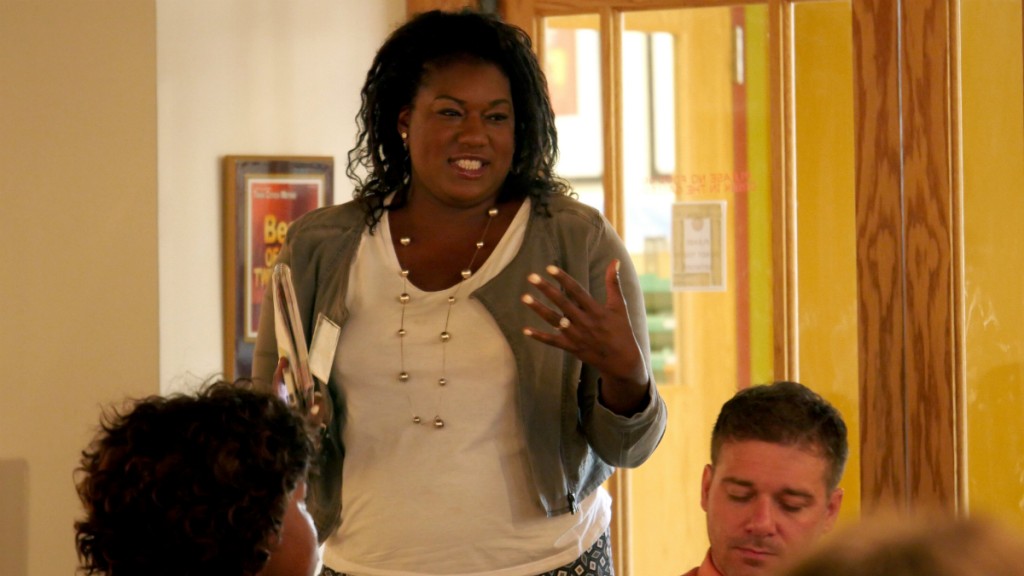

On truly reciprocal networking
“A network should be reciprocal but it is transactional. I think the challenge becomes that people who are in positions to offer something, to minority communities or to those with less experience professionally or personally, are automatically on the wrong end in terms of the power dynamic. It becomes extremely transactional. Oh you want to network? I have plenty to offer you, but I am not thinking about what you have to offer me. And I don’t know that I really care. The more we get into a place where people embrace that we have something to gain no matter the interaction, then that is when the shift begins to occur for the network, rather than just for the individuals of those at the opposite end of the power scale.
When people ask me to sit down and chat, I have a personal intention. I don’t come in ready to help this person. I come to talk. I come to learn. If something I say sparks something for them, great! But I am looking to learn more than anything else. “How will a shift in broadening networks take place? Lynnea asked who in the room was the first person of color to take a role at their organization. And many people raised their hands. As one of the first twenty-five years ago, I would have hoped that would stop happening by now. So I don’t know when. But I am hopeful that this will shift as conversations like these begin to permeate the landscape more and more and more. This conversation wasn’t happening twenty years ago. Not ten years ago. Maybe five years ago. It’s happening now, and I choose to view it with an optimistic lens.”
On advancing not only yourself, but your community too
If we believe wisdom resides within us, then we must also believe it resides in everyone else @DamonShoholm @PollenMidwest #unravelednetwork — Irene Fernando (@irenekfernando) August 26, 2015
“I am struck by the buzzword of ‘silo.’ It is important to bridge gaps in our networks by staying out of those silos. But one of the principles of a healthy community—based on work that I associate with Meg Wheatley—is the idea that the wisdom resides within us. And if we believe that it resides within us, it also resides within everybody else. Wisdom does not belong in just one particular group. It is not just one set of people who have an answer or a connection for us, it may be a lot of people. We are all human beings with lived experiences beyond our professional resume and those circles. We don’t give people enough credit for the wisdom they have within their communities. Networks should keep us un-siloed. People of color are not given enough credit for the fantastic networks they bring to the table.”
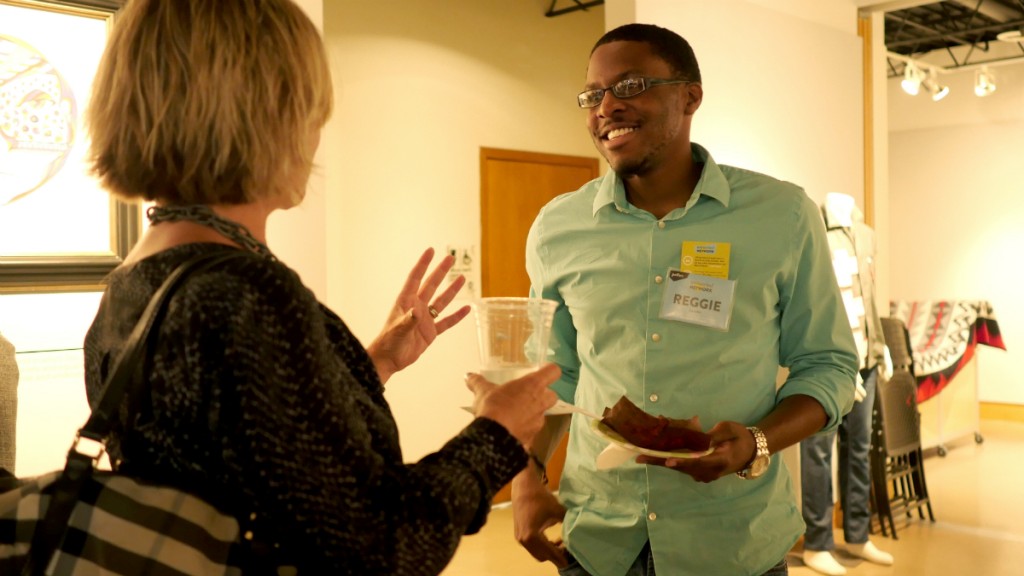
 Michael Bischoff
Michael Bischoff On the limitations of traditional networking
“One reason why the Twin Cities has racial disparities in networking, is because some people are really good at advancing their own interests and the interests of their friends. And it has worked fabulously for some people. I think the ways we network reinforce the people in control. One thing I have been working on is this lens of network weaving. It hopes to expand beyond an individual focus on networking. What do we want our community to look like? What communities do we want to be a part of? And how can we build relationships that cultivate that? “If we are not intentional about the kind of communities we want to create and be a part of, and only focus on the one-on-one part, then even if we try to make our own networks more diverse, it will still reinforce the dominant culture. “One key role is a network guardian, someone who will cull out what the communities want and what the communities are missing. Guardians must find the key relationships that need to happen. NACDI (Native American Community Development Institute) does a great job at this.”
On making space for others
“Especially in MN, we white do-gooders can be sort of like a virus.” –@SpiritofOrgs #unravelednetwork — Reggie Evans (@reg_delano) August 26, 2015
“I am a nerdy, skinny, white male, in a straight relationship, with a middle class upbringing.
“I claim a naive, white, do-gooder status. But I think we as naive, white do-gooder Minnesotans can be like a virus and fill lots of spaces. Maybe lots of Pollen spaces. In ways that don’t pay attention to other cultural ways of being. I have been guilty of this in lots of ways. I always default to how can I fill up spaces with my people and my cultural norms? One thing I try to practice is noticing that, stepping back, and asking who could co-create this with me and bring different cultural values and relationships. I need to pay attention to balance. And make space for others.”
Homework from Pollen
- Where you take coffee meetings matters. Pollen challenges you to think beyond the convenient coffee shop down the street from your office or house. Go beyond your comfort zone and explore other neighborhoods in your city.
- Who you take coffee meetings with matters. Pollen challenges you to analyze the past three months of your coffee meetings. What are the demographics of those meetings (gender, race, age, etc.)? What sectors, industries, and job functions does their work touch? Are these proactive or reactive meetings? Once you tally everything up, what do you see? Where are the gaps? How could you be more intentional as you work to broaden your network?
